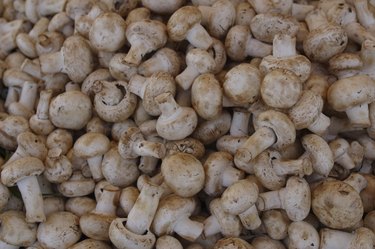
Edible mushrooms grow in the wild, can be grown in your garden and are also readily available at grocery stores and farmers' markets. Mushrooms are not vegetables, but rather part of the fungi family, which is why the distinction between edible and poisonous mushrooms is important. There are many different types of edible mushrooms, each with its own specific flavor that can be used for cooking or eating raw. The five most popular types of edible mushrooms include button, shiitake, portobello, chanterelles and puffballs.
Button Mushrooms
Video of the Day
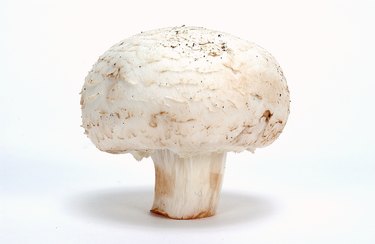
Also known as "table" mushrooms, the button mushroom is one of the most common types of mushrooms for salads and cooking. Button mushrooms are white in color, with small caps and stems, and all parts of the mushroom are edible. Button mushrooms are packaged fresh in the produce section and are also available canned.
Video of the Day
Shiitake Mushrooms
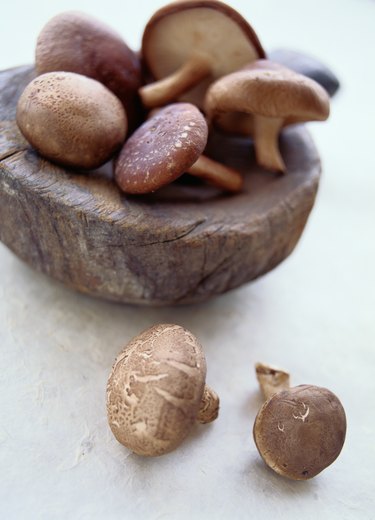
Shiitake mushrooms come from Asia and are widely used in many Asian recipes, though they have become increasingly popular in North America. They are typically brown in color with a cap that is approximately two to four inches in diameter. The flavor of the shiitake mushroom has an oaky or woodsy flavor. Choose mushrooms that are firm and plump. Avoid wrinkled, wet and slimy mushrooms.
Portobello Mushrooms
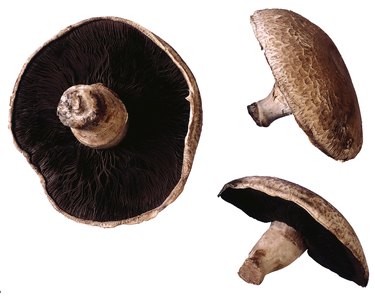
Portobello mushrooms, also known as "field mushrooms," have large open caps and a rich, meaty flavor. They are found growing wild in their native Europe, though they are now considered a delicacy and are widely cultivated. They are very thick in texture and are often used as meat substitutes in many vegetarian dishes. The caps are approximately four to six inches in diameter and the color is usually a dark brown. Grilling the portobello mushroom is the recommended method of cooking to bring out its distinctive flavor.
Chanterelle Mushrooms
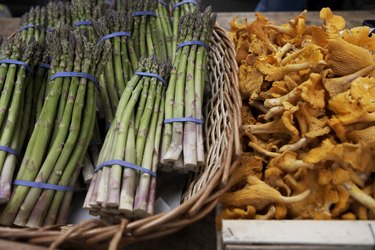
Chanterelle mushrooms are also known as "golden chanterelles" because of their golden appearance. Their caps are trumpet-shaped with wavy edges, and can range in size from very small in Europe and Asia, to as large as a fist in the United States. Chanterelles have a strong, fruity aroma, similar to apricots. They are primarily found in the wild and are difficult to cultivate, though they are highly coveted by chefs because of their inimitable flavor and their ability to enhance the flavor of a specific dish.
Puffballs
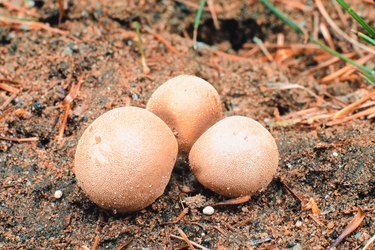
Puffball mushrooms can range in size from as small as a golf ball to as large as a soccer ball. They typically have no stems and vary in color from whitish grey to purplish brown, depending on the age of the mushroom. The inside of the puffball is solid and when sliced open should be completely white. If there are any traces of brown or yellow, this will ruin its flavor. It is recommended to sauté the puffball mushroom for optimum flavor.